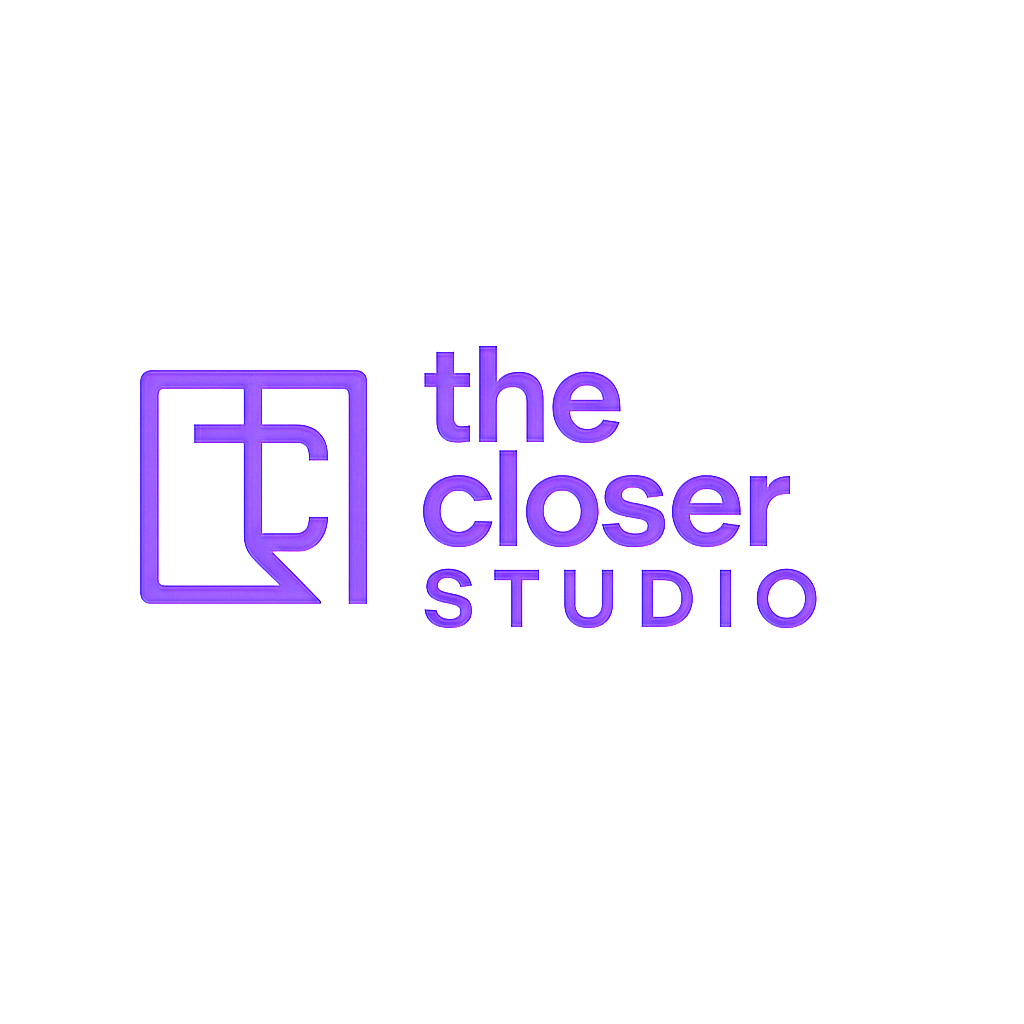Sales Scripts vs. Sales Conversations: Which One Actually Closes Deals?
- The Closer Studio

- Apr 1
- 3 min read
Updated: Oct 8
If you've ever jumped on a sales call clutching a script, only to feel awkward, flat, or fake... you're not alone.
And if you've ever ditched the script completely, hoping to "wing it" and sound more natural… only to lose control of the call and forget your key questions, yep, you’re not alone there either.
So what’s the answer? Should you stick to a script? Or just go with the flow?
Let’s break it down.
📜 Sales Scripts: Structure or Straightjacket?
Sales scripts exist for a reason. They help new reps:
Learn the flow of a sales call
Avoid missing key questions
Handle common objections
Stay focused under pressure
But here’s the problem: bad scripts lead to bad conversations.
When you're just reading from a page or repeating a canned pitch, you lose:
Authenticity
Adaptability
The ability to build trust
Most buyers can smell a script from a mile away and when they do, they disengage.
✅ Scripts are useful as training wheels but you’re not meant to ride with them forever.
💬 Sales Conversations: Natural but Risky (If You’re Unprepared)
On the flip side, you’ve got salespeople who ditch the script and try to keep it "real."
That can work… if you know what you’re doing.
But for many junior BDMs and AMs, going totally unscripted leads to:
Rambling intros
Missing key discovery questions
Failing to uncover pain points
Weak closes
Without structure, your calls feel casual but they don’t convert.
✅ Conversations build connection... but they need a framework to drive results.
🤝 So, What Does Actually Close Deals?
The truth is, neither rigid scripts nor fully ad-libbed conversations are the answer.
What closes deals is having a flexible call framework... a proven structure that:
Keeps the call on track
Feels natural and conversational
Allows you to adapt based on the buyer
Covers all the core points that move a deal forward
Think of it like jazz: you’ve got a core structure, but you’re free to improvise within it.
🎯 That’s the sweet spot between authenticity and effectiveness and that’s what most sales reps are missing.
🔥 Here's What That Framework Looks Like in Practice
Whether you're booking meetings, qualifying leads, or pitching your solution, a strong call framework should include:
Clear Opening – Establish trust and set expectations
High-Impact Discovery – Ask smart, open-ended questions that uncover real pain
Tailored Value Story – Link their problems to your solution in a way that lands
Handle Objections Smoothly – Without getting defensive or panicked
Confident Close – Know exactly how to move the deal forward
That’s what we help you build and practice in coaching.
🧠 Why You Can't Just Google a Good Sales Call
You can find free scripts online. You can watch sales call breakdowns on YouTube. But none of that is tailored to your sales style, your product, or your customers.
And none of it gives you live feedback when a call goes sideways.
That’s where 1-to-1 coaching makes all the difference.
🚀 Want to Build High-Converting Sales Conversations?
If you’re a BDM, Junior Account Manager, or early-career sales rep who wants to sound more natural without sacrificing structure, we should talk.
In the Orbit Accelerator and Pro Launch Pad, we work together to:
Build a personalised call framework based on your offer and market
Role-play discovery, pitch, and close scenarios to sharpen your delivery
Help you ditch robotic scripts and start leading calls with confidence
Whether you’re booking 2 calls a week or 20, this is the kind of practice that turns decent salespeople into consistent closers.
👉 Book the Orbit Accelerator or Pro Launch Pad and start turning your calls into conversions.
✅ Final Thought
You don’t need to sound scripted to close more deals. You need to sound prepared, confident, and in control, while still being you.
That’s the real skill and it’s 100% coachable.



